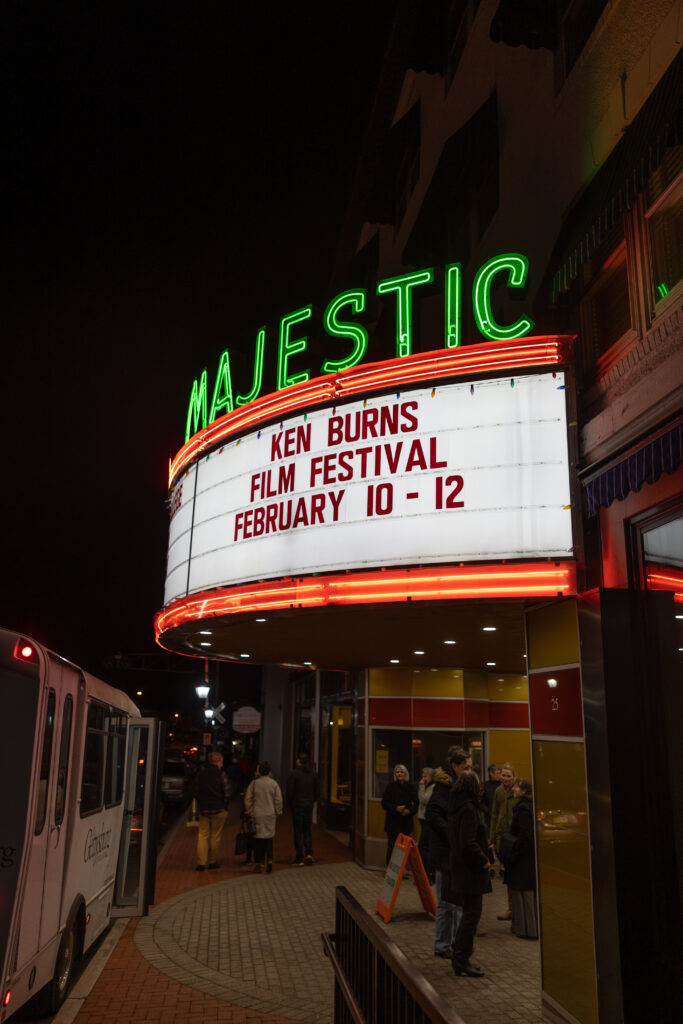Ken Burns Hosts “A Nation Divided” Clip Reel During Film Festival at the Majestic
By Ella Prieto, Assistant News Editor

The Majestic Theater hosted the Ken Burns Film Festival from Feb. 10 to Feb. 12, 2023 (Photo Eric Lippe/the Gettysburgian)
On Saturday, “Ken Burns Presents ‘A Nation Divided’ Thematic Clip Reel” took place at the Majestic Theater. This event was a part of the “Who are We?: A Festival Celebrating the Films of Ken Burns” occurring from Feb. 10 to Feb. 12.
During this event, Burns showed a clip reel that featured snippets from several of his films, including “A House Divided” and “A New Birth of Freedom” from “The Civil War;” “A Word to the Black Man” from “Unforgivable Blackness;” “Whose Side;” “MLK’s Assassination and its Aftermath;” and “Kent State” from “The Vietnam War.” The reel was produced by Burn’s company UNUM which works to explore American history and start new conversations from the films of Burn’s.
The event began with an introduction by American documentary filmmaker, producer, and Gettysburg native Jake Boritt. He and many others worked to make the film festival possible. Borrit thanked Gettysburg College President Bob Iliuano, Ken Burns and his crew from Florentine Films, WITF, the Majestic Theater staff, and volunteers.
Burns then walked out to a standing ovation from the crowd. He discussed what the UNUM project meant and shared his focus on the weaving and rhyming of history. His goal is for the UNUM clips to comment on current-day issues, especially the alienation of different American citizens.
“The othering of different people is where the human race has fallen so short,” said Burns. “We must focus on there only being an us, not ‘them.’”
The reel then began, highlighting historical moments such as the infamous caning of Senate Charles Sumner in the lead-up to the Civil War, the race riots following boxer Jack Johnson’s defeat of James Jefferies, and the pressures faced by American Society during the Vietnam War. All of the clips focused on times when America was deeply divided.
Following the clips, a conversation began between Burns and Boritt. They discussed the relevance of the clips. Burns once again highlighted the need for “us, not ‘them.’” He also mentioned how his other films, such as “Brooklyn Bridge” and “The U.S. and the Holocaust,” fit into the conversation of divisiveness and alienation.
Particularly in “The U.S. and the Holocaust,” Burns explained how the fast pace of the spread of ideas influences a population, mentioning, “The time to save a democracy is before it is lost.”
Burns also described his work as “[l]ooking for the mitigating and reconciling factors, [as] that is the element of story.” Burns shared that people need to look outside binary constructs and instead look for those reconciliations.
The conversation concluded with Burns explaining his belief that “love multiplies,” followed by another standing ovation from the crowd.
